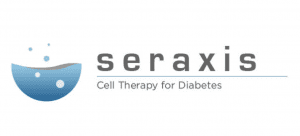
Intellectual Property Law Firm McBee, Moore & Vanik IP, LLC Earns Two National Institutes of Health Ten Year Contracts
McBee, Moore & Vanik (MMV) IP, LLC , a boutique intellectual property law firm with locations in Frederick, Maryland, and Tysons Corner, Virginia was selected by the National Institutes of Health (NIH) to provide the organization with patent legal services under two 10-year contracts.
MMV’s NIH contracts are for chemistry and biotechnology IP; the law firm is in rarefied air, as it is only one of nine law practices to win an NIH biotechnology contract and one of only seven firms awarded NIH chemistry contracts. Winning these NIH contracts marks a major milestone for the IP law firm that’s not even five years old.
The firm specializes in patent prosecution and counseling, post grant proceedings before the U.S Patent Office (USPTO) and trademark preparation and prosecution, providing a wide array of expert services to inventors, entrepreneurs and companies across pharma, biotech, medical technology and chemistry and materials science. The firm represents clients from around the world, assisting with everything from drafting patent applications, shepherding the applications through the USPTO, developing business strategies, helping to secure licenses, and protecting patents against challenges.
“One thing that separates our firm from others is that we are local in Maryland and we know the industry here. We are still a known quantity even though we’re only four and half years old. We’ve represented a lot of big multinational clients. When we started our firm we switched gears a bit to representing some smaller, local clients. We have also worked with the premier investment houses locally, in Boston and California, and they know our work. Just getting a patent isn’t necessarily indicative of something a company would want to invest in,” stated Susan E. McBee , Partner and Co-founder of MMV.
“Having a patent that covers the product, gives a lot of wiggle room against other competing technologies, and doesn’t step on any existing patents creates a lot of value,” McBee added.
McBee, Chester G. Moore , Ph.D., and David L. Vanik , Ph.D., started MMV in 2016 after working together for a number of years at larger law firms.
“At the end of 2015, we made the decision that our group was really better off in a boutique setting because it offered us better flexibility. As technology changed we saw that as an IP group that does patent prosecution and counseling we needed specialized workflows, docketing and employee management. Our needs were diverging from what a traditional, larger law firm does,” said McBee.
McBee, Moore & Vanik moved their entire group from the larger law firm over to start MMV in January 2016; the company began with 16 employees and has grown to 22 staff since the firm launched.
“All of our lawyers but two have PhDs or MDs so we are hyper-specialized in the sciences and in the fields we work in. Three of us were also former U.S. Patent Office examiners so we took what was a specialized field and made it more specialized,” added McBee. “We have two offices but we have always been completely decentralized; when COVID-19 hit in March we already were set up to be a remote firm, which was part of the mantra for founding the company.”
Moore, who spearheaded the NIH contract project wins, also led the firm’s efforts to build out an effective, secure and agile remote work IT infrastructure.
“There is so much that goes into building a remote work, digital infrastructure. I knew it was possible because of all the technological developments. The patent office has hoteling and examiners have been able to work from home for a long time and we work primarily with the patent office. They are set up to receive files electronically…so watching the patent office it was easy to make the connection that if the patent office can do it we can do it, too,” stated Moore.
“There are benefits to big law firm give-and-take but there are drawbacks as well. We decided that we wanted the benefits of being smaller, more nimble and completely paperless. We have everything digitized and interconnected, which helps us find, catalogue and search things much more quickly and the whole system is redundant, encrypted, secure and with multiple layers of backups,” added Moore.
“We have to manage our project calendars, names, and files, and the software we use integrates everything and keeps all our information in a central repository. If I need to generate a document I pull from this repository. This is simple conceptually but it’s a lifesaver,” shared Moore.
“Our firm actually just recently registered its own trademark for what we call ‘Agile IT.’ We don’t take a file and wait, file and wait, ‘churn and burn’ approach to what we do. We are a lot more proactive and agile than that,” shared McBee. “We understand what it takes to be successful.”
With 80% of its lawyers holding PhDs or MDs in the sciences, a robust and effective digital and remote work infrastructure, a business model focused on agility and an impressive patent prosecution and counseling track record for big multinationals and smaller clients, it’s no wonder NIH chose MMV as a partner.
That’s not to say winning the two, ten year NIH contracts in biotech and chemistry was easy, by any means.
Moore stated, “The NIH put out a list of broad and comprehensive requirements and we sat down and sorted out everything. I took about a week to pull apart the details and that’s when I realized that this was just an enormous project.”
“We started to peck away at it and answer the NIH’s questions. It was really interesting. The process forced us to think it through and put on paper what we’re all about…like how do you do things? Why do you do things this way? What do you have to prevent these problems?” added Moore. “What we will do for the NIH is what we’d do for any of our clients. But what’s different for us is that the NIH doesn’t exist to make commercial products, the goal is to benefit society. It’s a different mission. Working with clients like the NIH is so new, so different, and comes from a eureka moment that develops into something they think is worth patenting.”
“These NIH contracts could be a gamechanger for our firm. The NIH does fantastic science and we feel great to be involved with what they’re doing. It’s nice to have the opportunity to work with great science on the law side of things. I don’t have to go into the lab and hope something is going to work. We get to deal with the happy side of things where they’ve had a fantastic discovery and they want to get that through the patent office. We’re on the happy side of these experiments,” stated Moore.
MMV is thriving right in the heart of the BioHealth Capital Region (BHCR) and sees the region as a great place to continue to grow.
“There is so much activity here. So many connections. The USPTO is here, which is huge, and there are fantastic research universities and fantastic large and small companies here,” stated Moore. “There are so many opportunities to get out there and meet people; you need that critical mass and people getting together and talking.”
When asked to offer some pro bono advice for those seeking a patent, Moore stated: “Do not disclose your idea until you have spoken with your tech transfer officer or counselor. Play it close to the vest. Get that invention to the patent office as fast as you can.”
With two, ten year NIH contracts now under its belt, an agile, IT-driven approach, and a deeply experienced team of IP lawyers ready to guide inventors, entrepreneurs and companies through the patent gauntlet, MMV is poised to play an integral role in growing innovation within the BHCR for years to come.
- About the Author
- Latest Posts
Steve brings nearly twenty years of experience in marketing and content creation to the WorkForce Genetics team. He loves writing engaging content and working with partners, companies, and individuals to share their unique stories and showcase their work. Steve holds a BA in English from Providence College and an MA in American Literature from Montclair State University. He lives in Frederick, Maryland with his wife, two sons, and the family dog.




